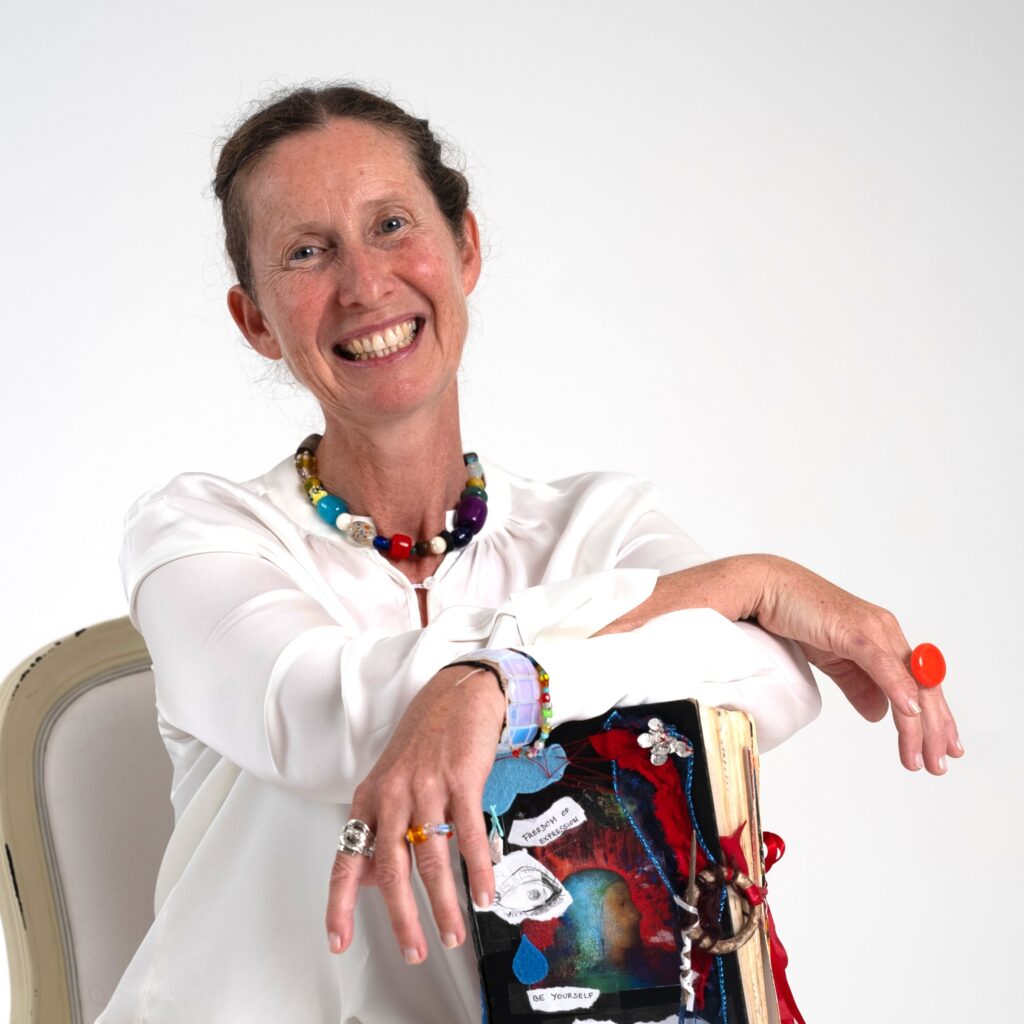Overview of Personality Disorders
A personality disorder refers to a way of thinking, feeling, and/or behaving which deviates from the cultural and social expectations inherent within an individual’s environment, which then causes distress or problems functioning, lasting over an extended period of time. People with personality disorders find it hard to change their behaviour or adapt to different situations.
There have been difficulties in clearly defining personality disorders. Previous research studies have suggested that up to 1 in 5 people (20%) might have a personality disorder. However, a more extensive and more rigorous UK study in 2006 suggested that about 1 in 20 people (5%) will have a personality disorder. According to the National Comorbidity Study Replication, 9.1% of adults in the United States have a personality disorder. Also, an Australian first nationwide survey of mental disorders study shows approximately 6.5% of the adult population of Australia have one or more personality disorders. Persons with PD were more likely to be younger, male, not married, and to have an anxiety disorder, an affective disorder, a substance use disorder, or a physical condition.
Studies show that approximately 39% of people with a personality disorder reported receiving treatment in the last year. Some people may not realise they suffer from personality disorders and hence do not receive adequate treatment. If you or someone you know has signs of a personality disorder such as erratic behaviour, mood swings, or problems in relationships, then it’s worth seeing a doctor.
There are many different types of personality disorders. They all have different symptoms and influence everyday life in a different ways. There is, however, one thing they have in common; if the symptoms are severe enough, the individual suffering from the disorder may have trouble sustaining work or forming positive relationships with others.
Narcissistic Personality Disorder (NPD) depicts a pervasive pattern of grandiosity, need for admiration, along with a lack of empathy. People with narcissistic personalities battle an internal conflict of shame and envy as their two main emotions. They can experience shame as a sense of being seen as wrong or bad if they perceive others to be seeing them negatively. Although being narcissistic can lead to great success as they are prone to using idealisation and devaluation as a defensive strategy to improve their own self-worth, they may try to devalue (bring down) others to idealise (build up) themselves, and vice versa when they feel inadequate.
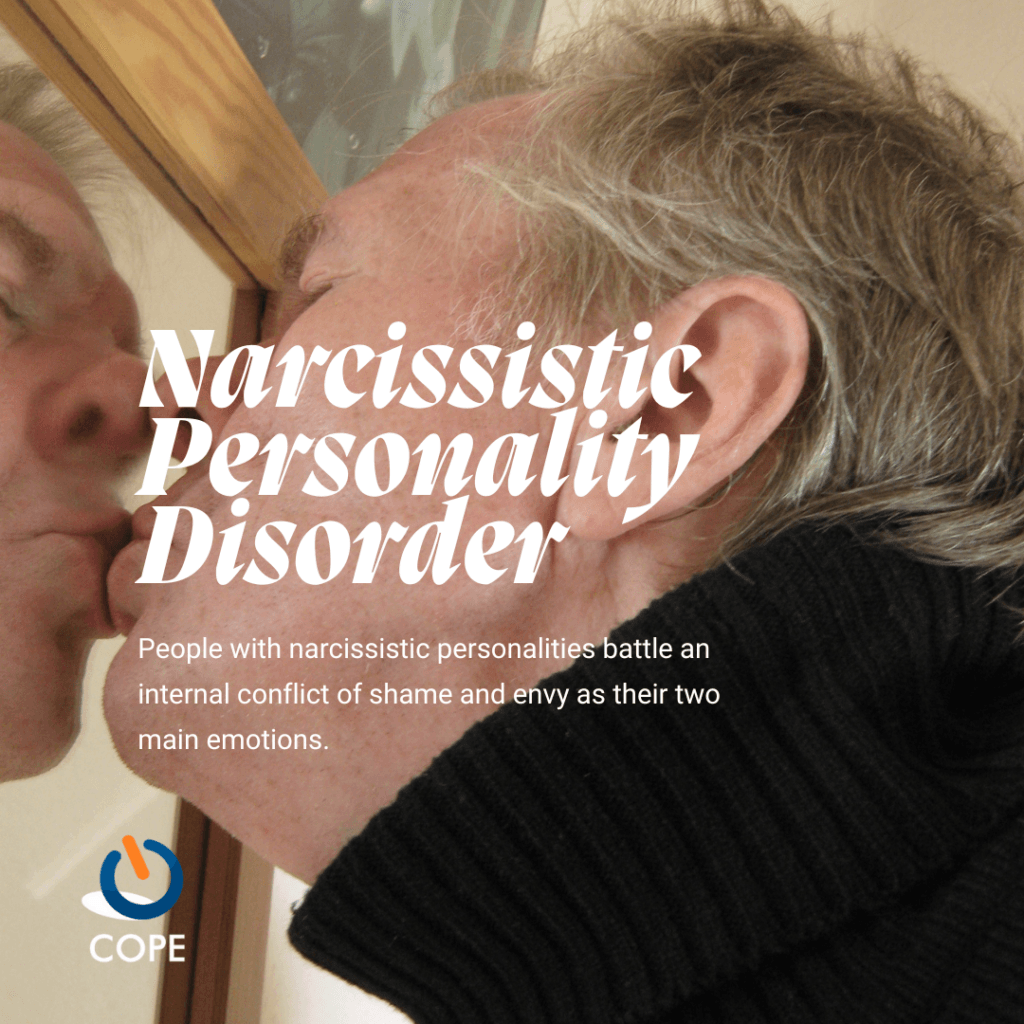
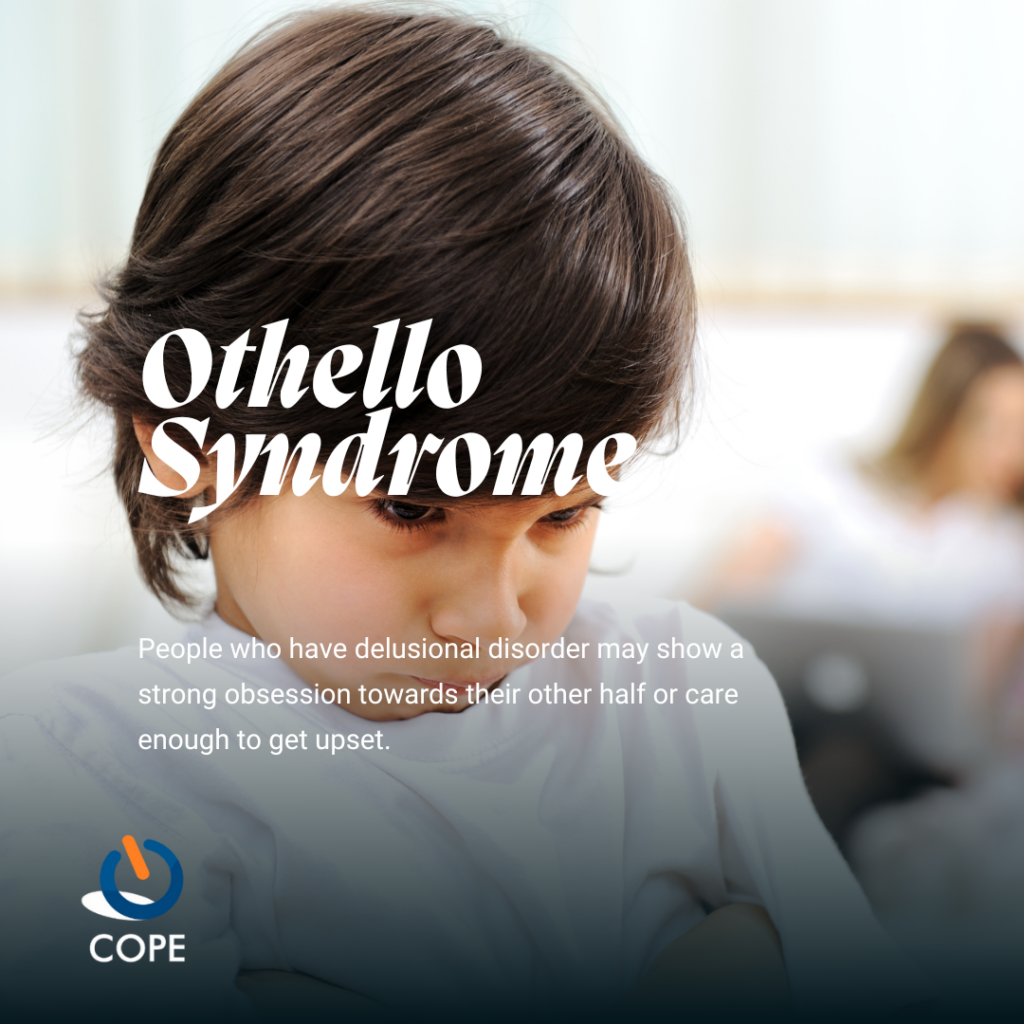
Othello Syndrome (Delusional Disorder) is a pathological Jealousy type of mental disorder that is quoted in the DSM-5. People who have delusional disorder may show a strong obsession towards their other half or care enough to get upset. Extreme jealousy, Inability to control impulses, stalking them, finding fault with them, and even verbal and physical abuse are all symptoms of Delusion Disorder. Othello Syndrome can be a very distressing disorder for the person suffering from it and their partner as well. It greatly impacts the couple’s quality of life and causes high tensions in the relationship, which is unhealthy for the long term.
Obsessive-Compulsive Personality Disorder is one of the most common personality disorders in the community. It is characterised by a constant preoccupation with details, scheduling, organisation and/or rules. A focus on perfectionist goals and ‘productivity’ highly influences the enjoyment of everyday life and one’s relationships with others. Obsessive-Compulsive personalities will make grand efforts in setting rules and conventions to ensure they feel ‘in control’. Expressions of affection are perceived to be immature, and a sense of embarrassment would be felt if they accidentally behaved childishly.
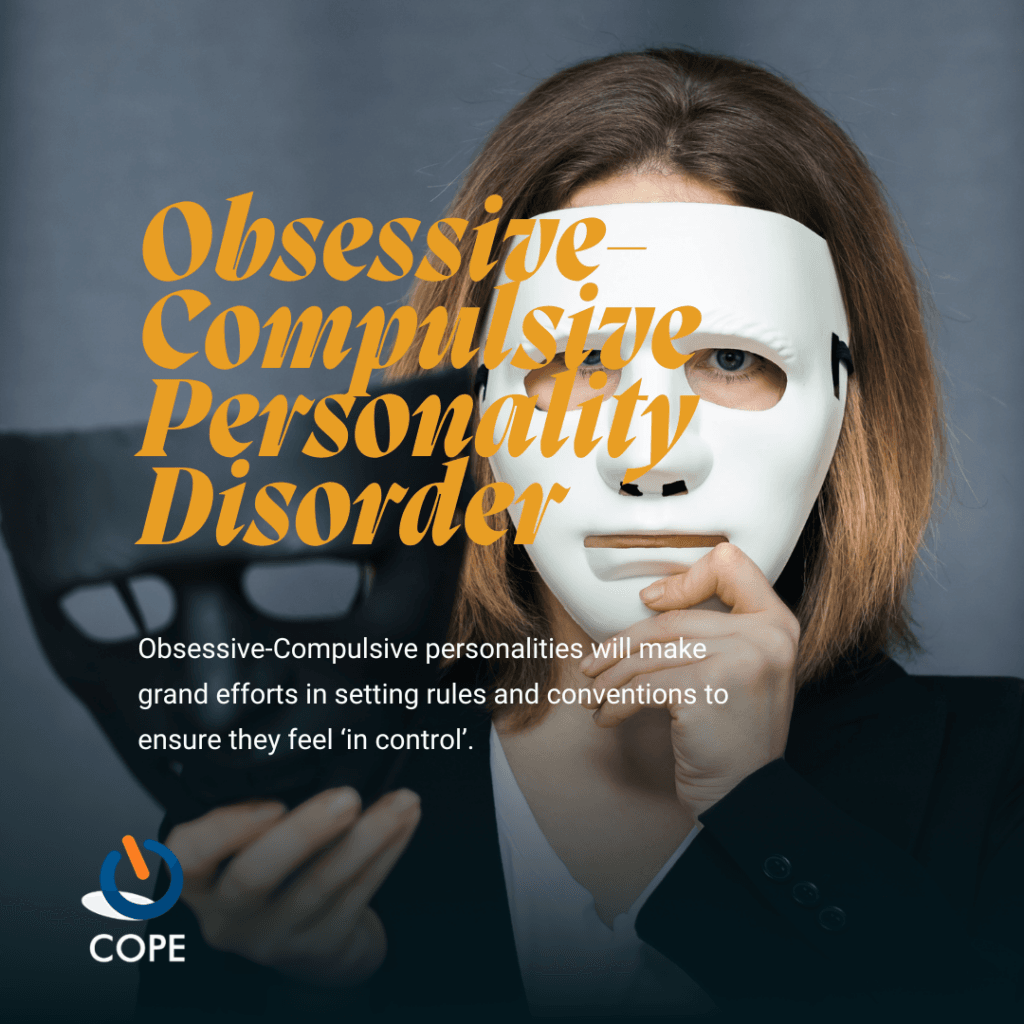
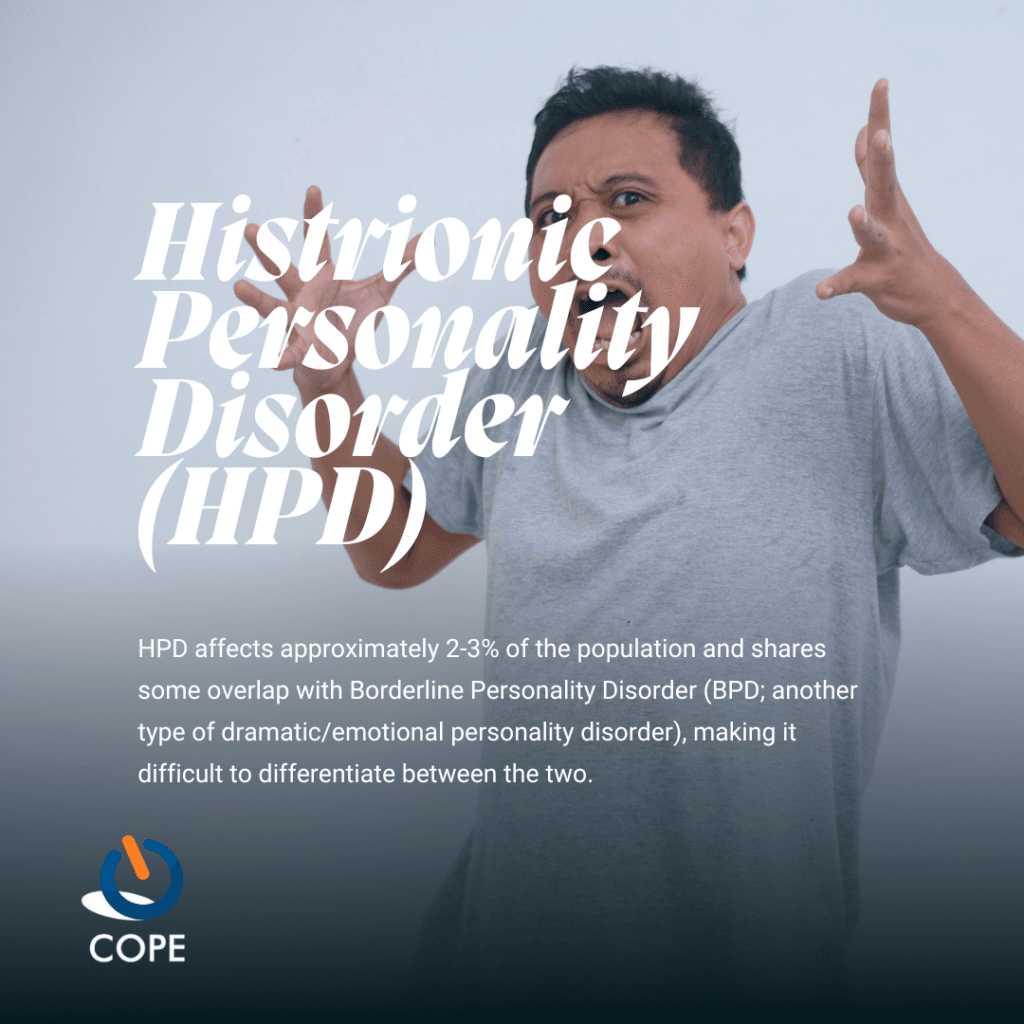
Histrionic Personality Disorder (HPD) is a type of dramatic/emotional personality disorder characterised by a pattern of excessive emotionality and attention-seeking behaviours, often presenting by early adulthood. Individuals with HPD may come across as overly dramatic, erratic, and emotional, often with attention-seeking tendencies. HPD affects approximately 2-3% of the population and shares some overlap with Borderline Personality Disorder (BPD; another type of dramatic/emotional personality disorder), making it difficult to differentiate between the two.
Borderline Personality Disorder (BPD) is a complex mental health disorder that can severely affect how a person sees themselves, relates to others, and makes sense of the world around them. It is marked by an ongoing pattern of intense mood swings, unstable self-image, feelings of emptiness, difficulties managing anger, and impulsive, reckless behaviours. BPD Typically manifests in mid to late teens or early adulthood, such symptoms can be extremely emotionally distressing for both the patient and their loved ones. People with BDP are often terrified of the thought of rejection or abandonment and as a result, may make frantic efforts towards avoiding this. Unstable and intense interpersonal relationships are also common.
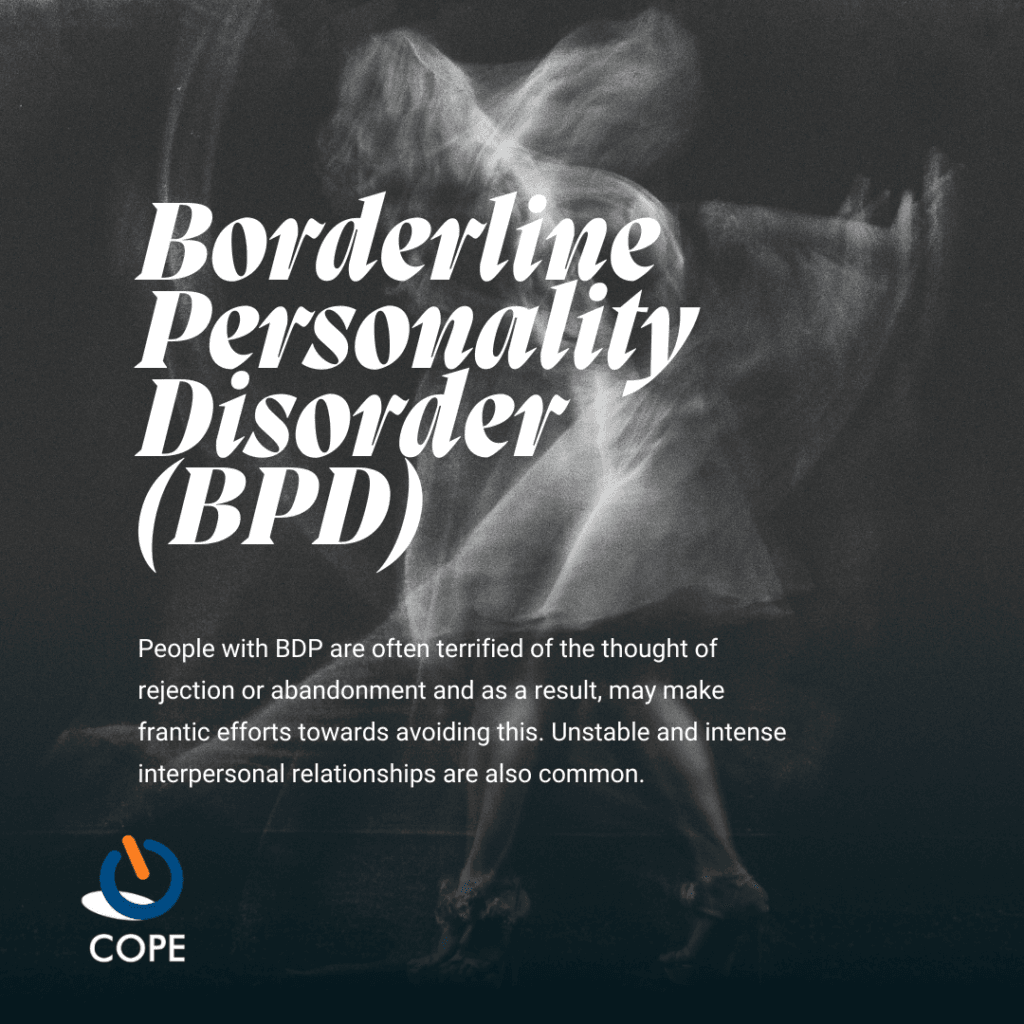
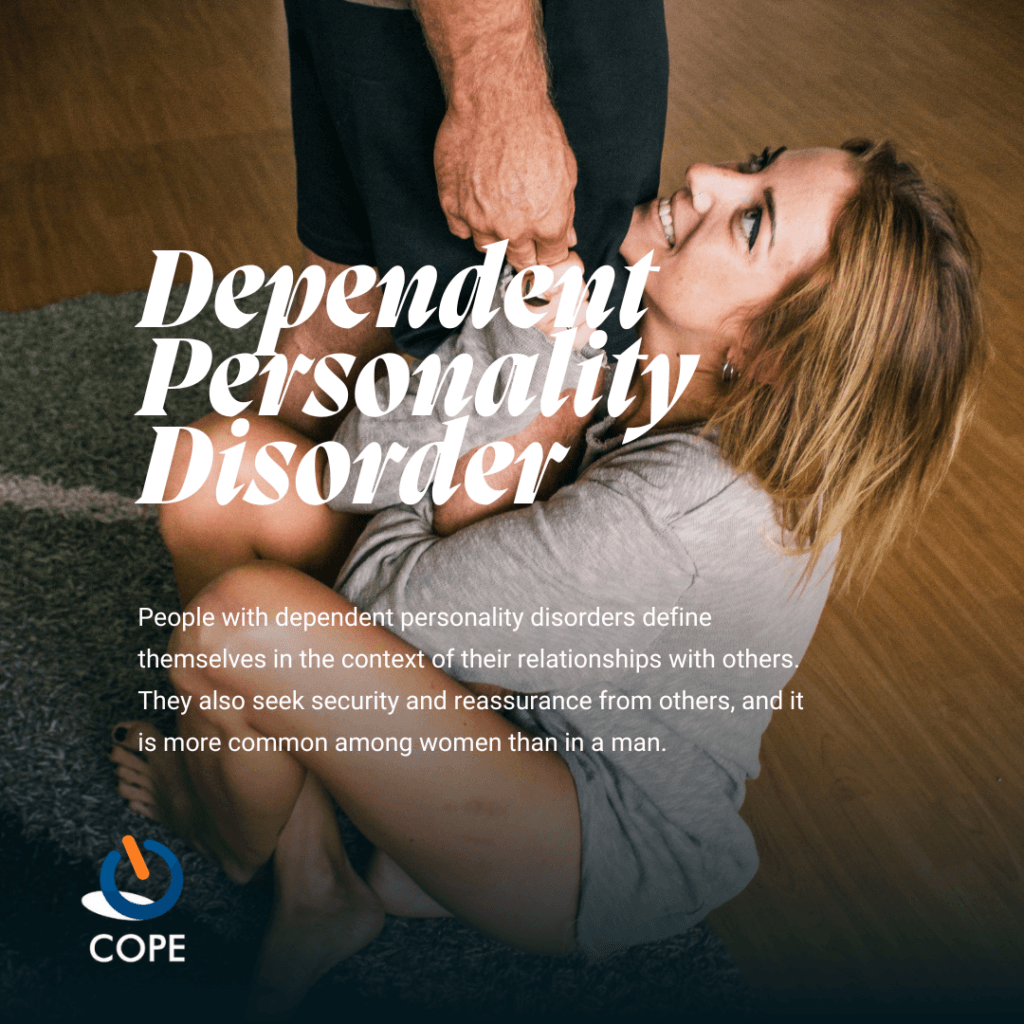
Dependent Personality Disorder is when people have excessive dependent needs towards others. They find it difficult to leave “exploitative” or “abusive” relationships. People with dependent personality disorders define themselves in the context of their relationships with others. They also seek security and reassurance from others, and it is more common among women than in a man. The symptoms could be a pervasive pattern of dependent and submissive behaviour; inability to make decisions without an excessive amount of advice and reassurance from others; pessimism, self-doubt, passivity and fears of expressing sexual and aggressive feelings all typify the behaviour; an abusive, unfaithful, or alcoholic spouse may be tolerated for long periods to avoid disturbing the sense of attachment.
The link between all personality disorders – Developmental
Most personality disorders are caused by bad experiences they had in their childhood. Such as unstable relationships with their caregivers; familial issues where one parent is unfaithful to the other; rigid and inflexible caregivers; overprotective and/or authoritarian parenting; childhood abuse or insecure attachment patterns with the caregiver; traumatised experiences or/and not receiving appropriate support or nurturing from their caregiver. A kid is less likely to have the capacity to indulge in their childhood to the detriment of their normal psychological development and continue to apply these behaviours in their adult life. Not only childhood trauma but also, in general, experiencing various trauma, can refer to traumatic life events such as physical, sexual, or emotional abuse, abandonment/neglect and other instances of adversity; as well as exposure to unstable, invalidating or hostile relationships, and/or too stressful incidents such as witnessing conflict or violence, may causing patients to have trouble confronting and overcome them then developed into several personality disorders by caring on maladaptive behaviours into their adult life. But for many others, research indicates that sometimes a cause of personality disorders likely involves a combination of genetics, neurology (brain structure and function) and environmental, social, and cultural factors, for example regarding achievement vs relatedness.
Personality disorders can be a life-long challenge for both patients and people around them, with early diagnosis and appropriate treatment it is possible to recover.
Our Creative Arts Therapist
AThR
Creative Arts & Psychodynamic Psychotherapist
Elisabeth Eitelberger is a registered Psychotherapist and Clinical Counsellor with PACFA, as well as a professionally recognised Creative Arts Therapist with ANZACATA. She tailors her therapeutic approach to address the specific challenges and requirements of her clients, creating a trauma-informed and culturally sensitive environment that encourages both verbal and non-verbal expression.
Her diverse interests encompass Trauma, C-PTSD, Neurodivergence (including Autism, ADHD, and Dyslexia), Identity Development with a focus on LGBTQIA+, along with Anxiety, Depression, Mental Health Disorders, Chronic Pain, and Existential Self-Exploration. Elisabeth advocates for an integrative methodology that combines evidence-based practices with somatic and creative arts therapy, drawing on Psychodynamic and Psychoanalytic Psychotherapy, as well as incorporating techniques from Internal Family Systems, Polyvagal Theory, Sensorimotor Psychotherapy, DBT, MBT, Interpersonal and Existential Psychotherapy, and Humanistic Theories.
With a wealth of experience assisting clients from diverse backgrounds, Elisabeth has also maintained a professional career as an interdisciplinary artist for over thirty years. She holds Master’s degrees in Creative Arts Therapies from Murdoch University and Philosophy from Vienna University.

